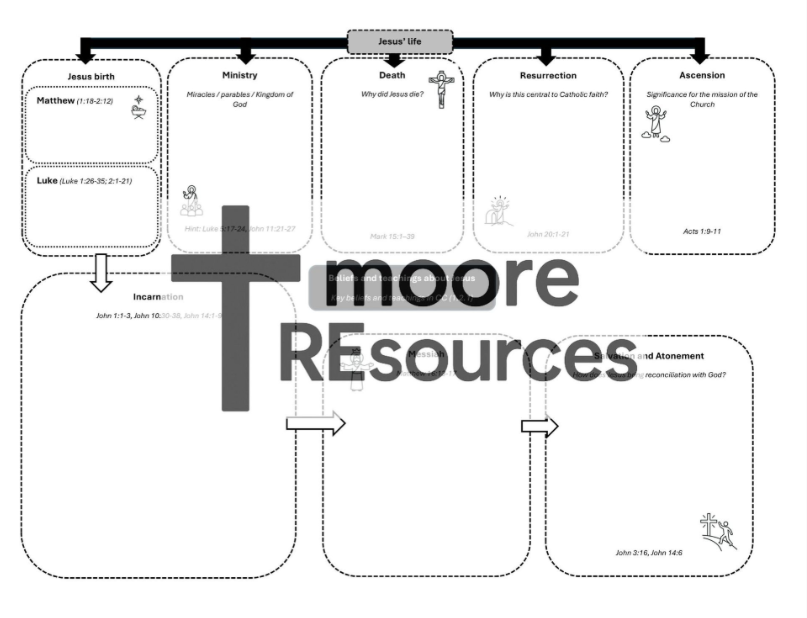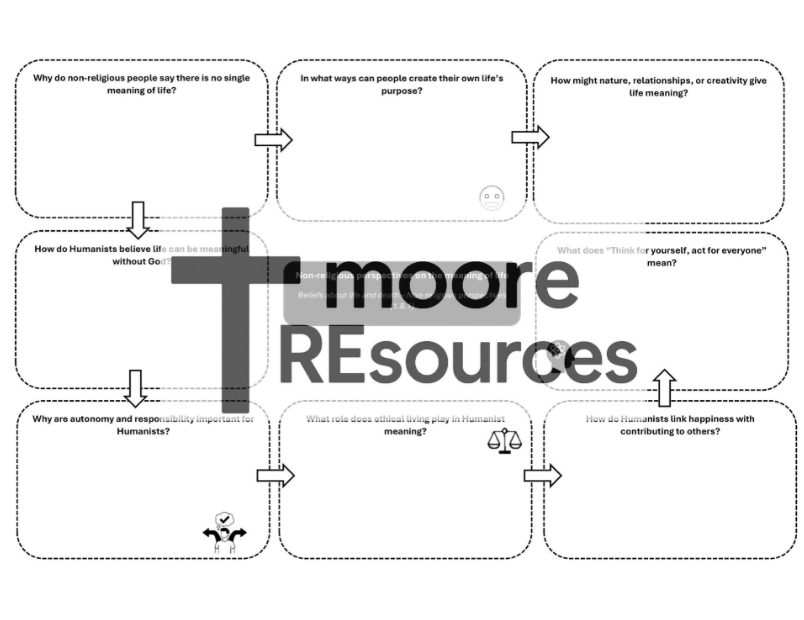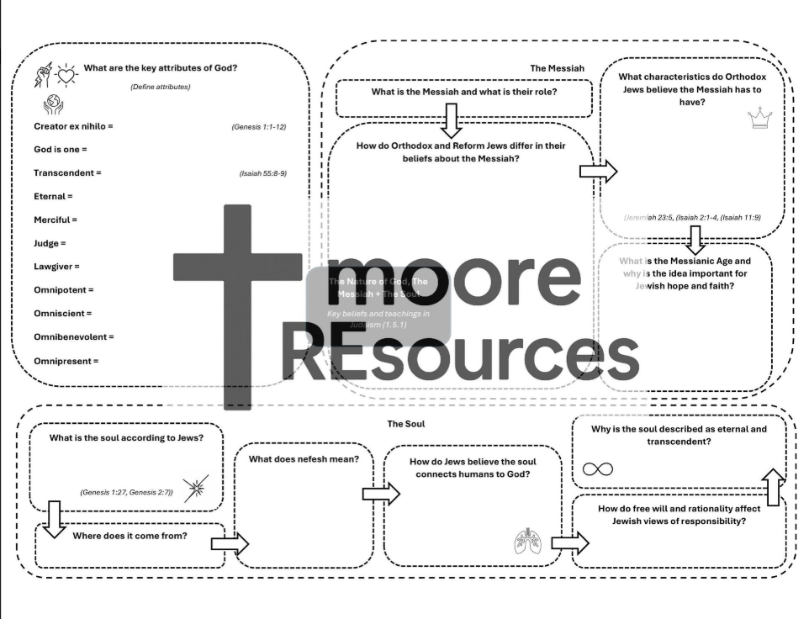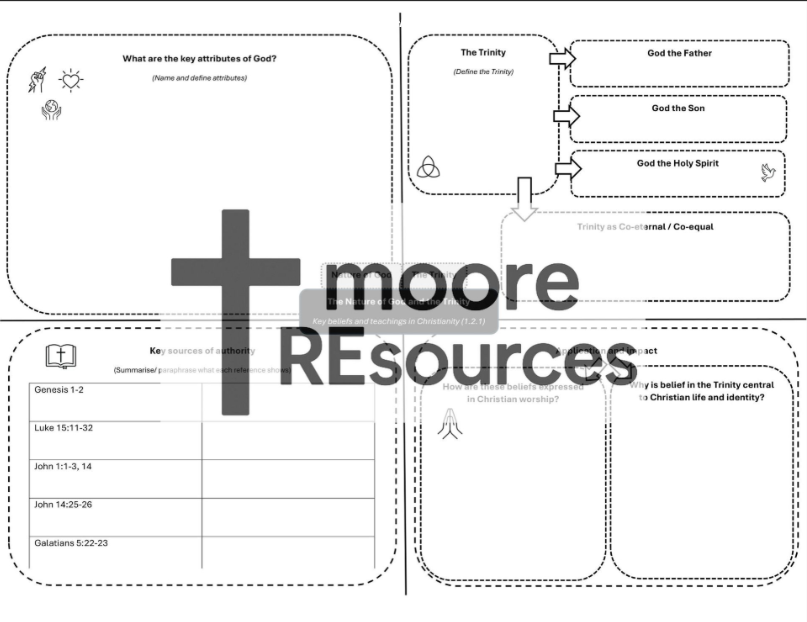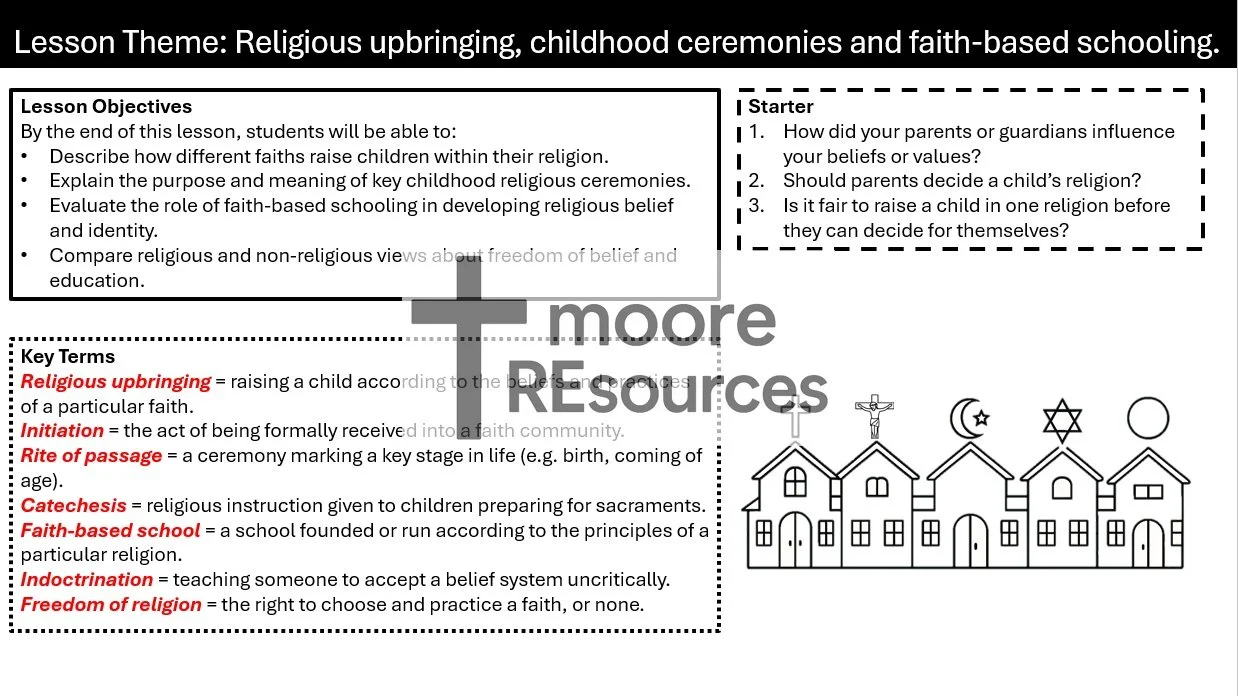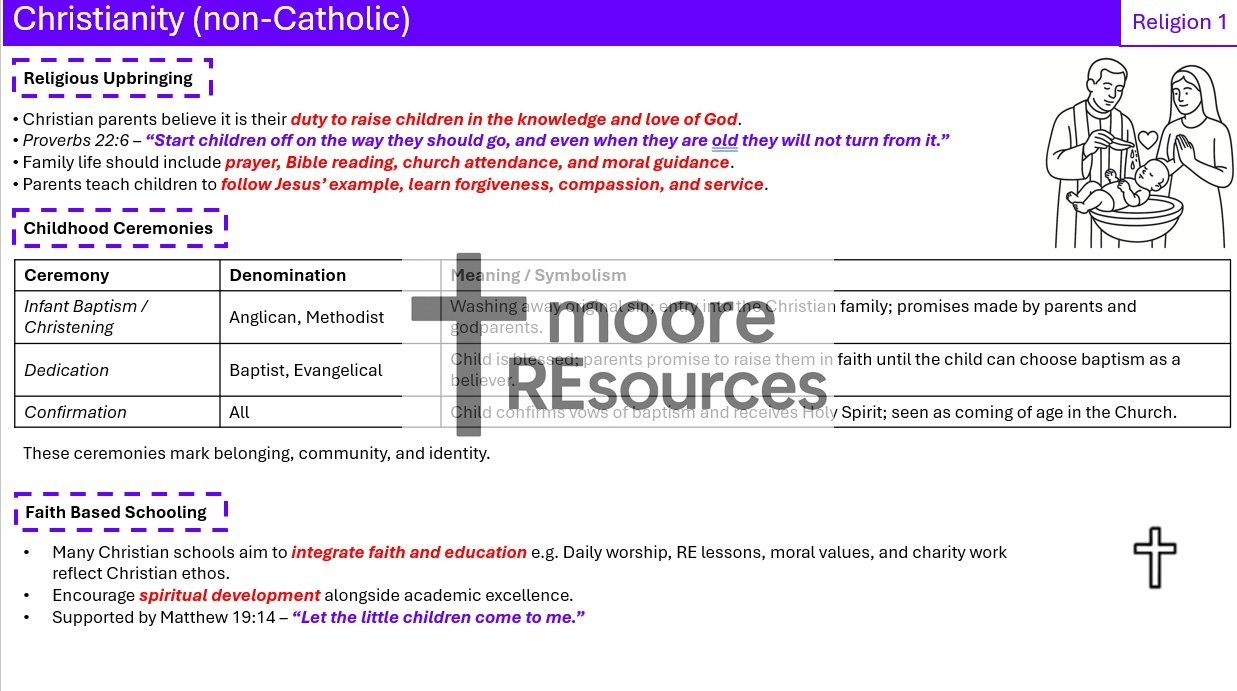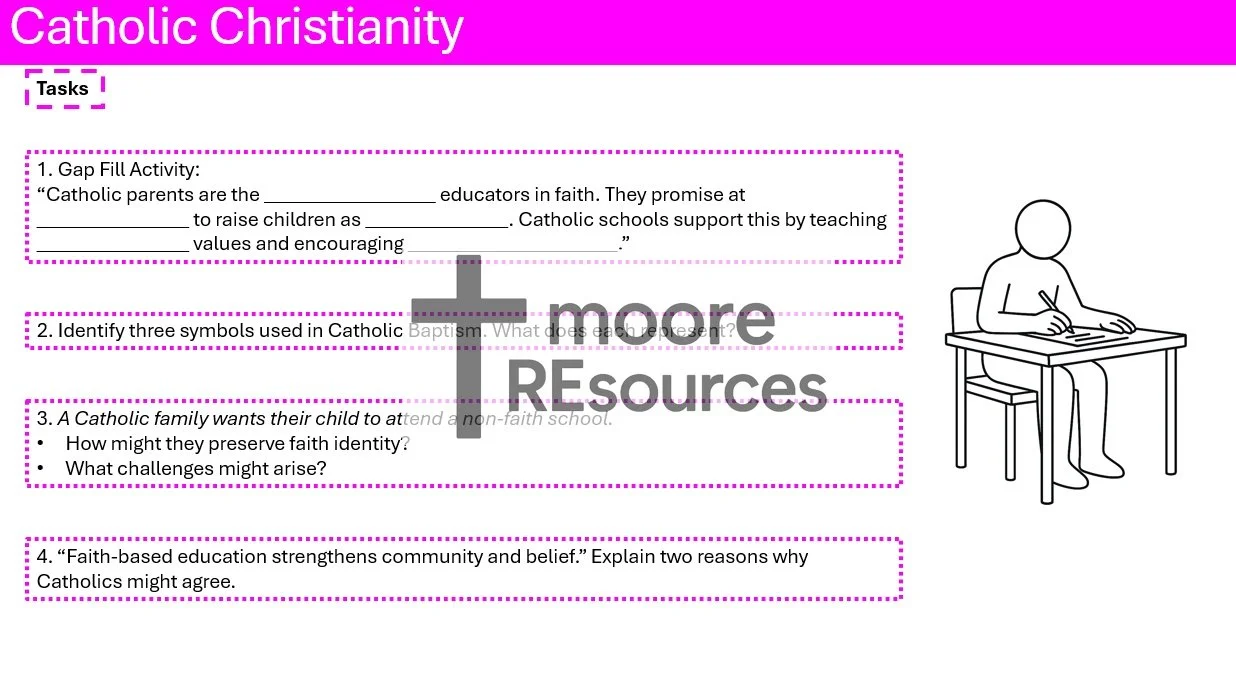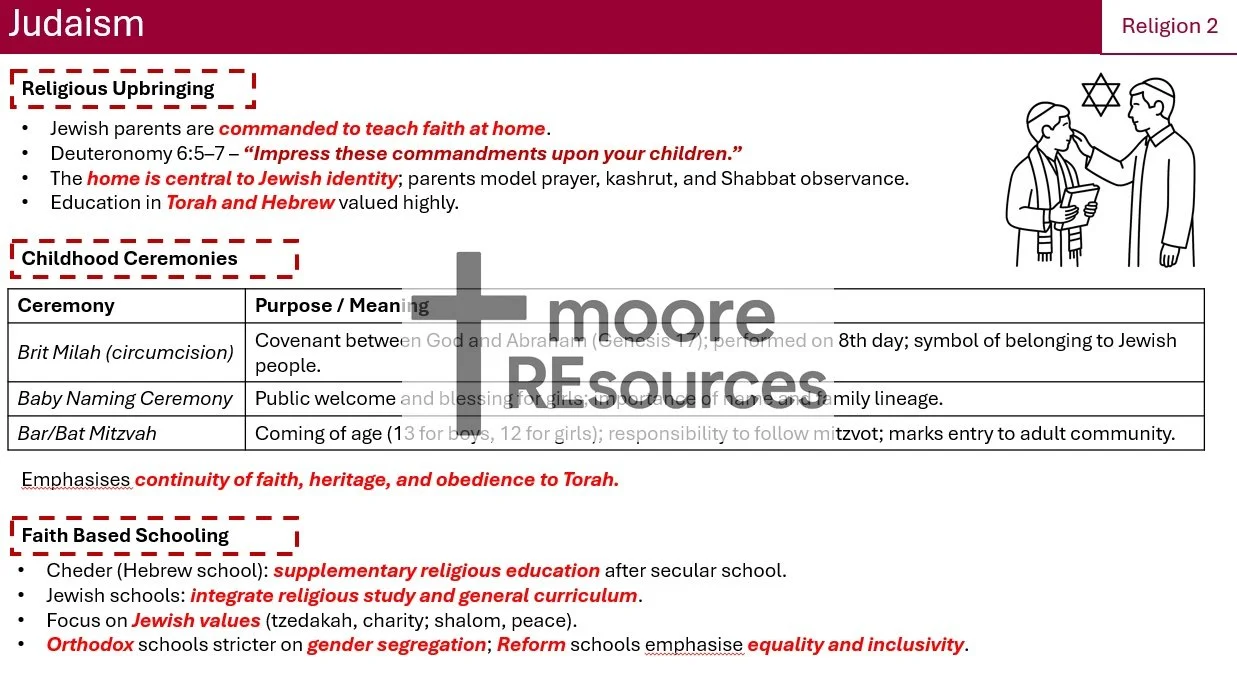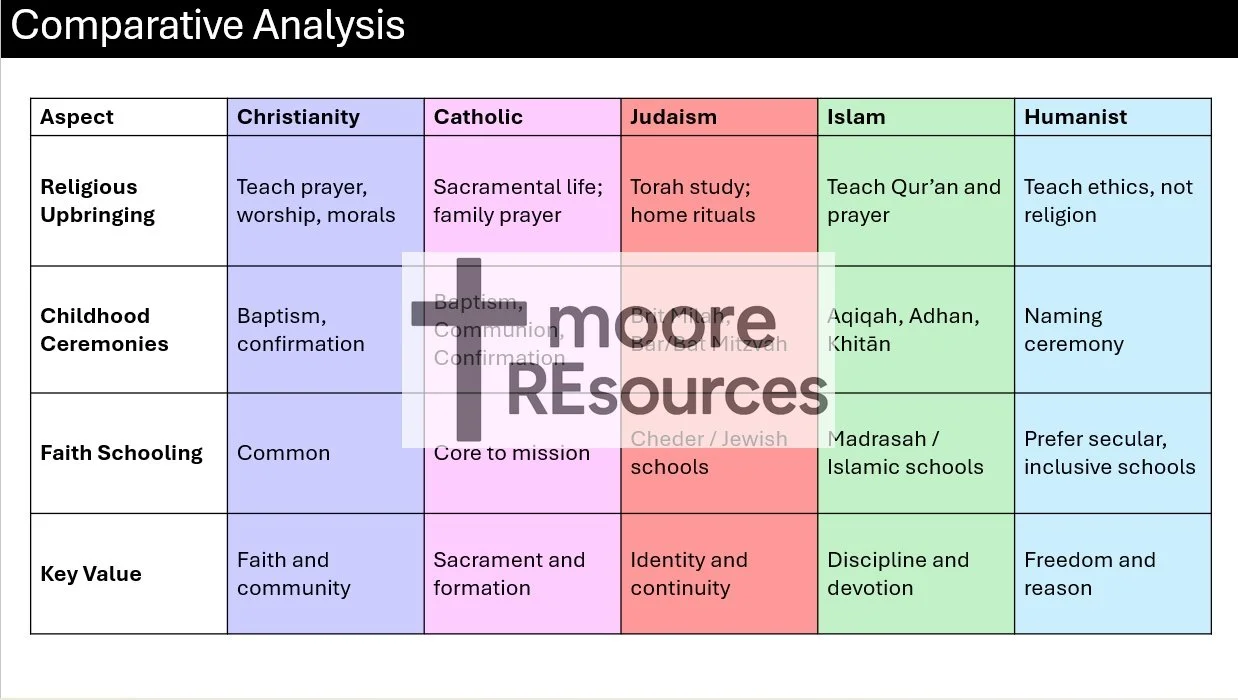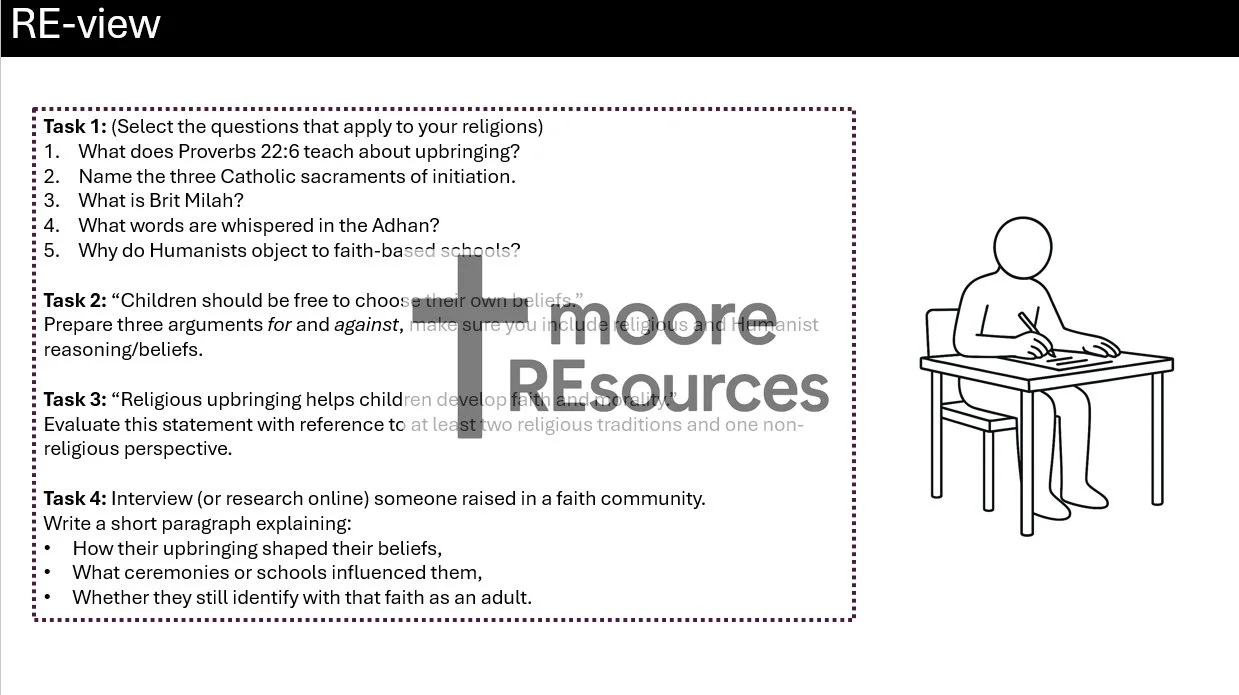 Image 1 of 10
Image 1 of 10

 Image 2 of 10
Image 2 of 10

 Image 3 of 10
Image 3 of 10

 Image 4 of 10
Image 4 of 10

 Image 5 of 10
Image 5 of 10

 Image 6 of 10
Image 6 of 10

 Image 7 of 10
Image 7 of 10

 Image 8 of 10
Image 8 of 10

 Image 9 of 10
Image 9 of 10

 Image 10 of 10
Image 10 of 10











Unit 1 - Christianity Bundle
USE CODE BUNDLE10 FOR £10 OFF WHEN YOU BUY TWO BUNDLES
Bring the richness of Christian belief, practice, and moral teaching to life with this in-depth and inspiring Bundle Pack for Units 1.1a to 1.4a: Christianity. Carefully aligned to the WJEC Religious Studies 2025 specification, this comprehensive collection enables learners to explore foundational Christian doctrines, beliefs about life and death, moral reasoning, and contemporary expressions of faith. Thoughtfully designed to deepen understanding, encourage critical thinking, and support excellent exam preparation.
Learners Will Understand:
1.1.1 Nature of Belief
Key concepts: theism, monotheism, polytheism, religious pluralism, and agnosticism.
Why people believe in a God or gods, and identify as religious.
Atheist and humanist perspectives, and why some people reject belief in God.
1.2.1a Key Beliefs and Teachings in Christianity
The nature of God: Creator, omnipotent, omniscient, omnibenevolent, omnipresent.
The doctrine of the Trinity: Father, Son, and Holy Spirit.
Teachings about Jesus: birth, incarnation, ministry, death, resurrection, ascension, and role as Messiah and Saviour.
Christian beliefs about the soul: created in God’s image, eternal, free will, and fallen nature.
Key statements of faith: the Apostles’ Creed and the Lord’s Prayer.
The Bible as a source of wisdom and guidance: literal, conservative, and liberal interpretations.
1.2.2a Christian Belief in Action
Living out faith through generosity, service, and support for the poor.
The biblical call to put faith into action (Acts 20:35, James 2:17).
Christian Aid as an example of contemporary Christian activism.
1.3.1a Meaning of Life in Christianity
Worshipping God as the central purpose of life.
The command to love God and others.
Spiritual growth and transformation (Luke 8:1–15).
1.3.2a Christian Beliefs About Life After Death
Heaven, hell, and resurrection beliefs grounded in scripture.
Judgement and salvation through Christ (John 3:16, John 11:25–26).
1.3.3a Christian Mourning and Funeral Practices
Funerals as a way to commit the soul to God, express gratitude, and celebrate life.
Practices including vigils, funeral services, prayers, hymns, and rites of committal.
Burial and cremation, and the use of symbols in mourning.
1.4.1a Christian Identity, Belonging and Practices
Belonging to a worshipping community and living with shared moral purpose.
Pilgrimage as an expression of devotion, focusing on St David’s Cathedral and Taizé.
Rites of passage: baptism (infant and believer’s), eucharist, and confirmation.
1.4.2a Christianity and Morality
Divine command ethics: Ten Commandments, love, forgiveness, and the Bible as moral authority.
The role of conscience in moral decision-making.
Judgement in the afterlife: treasures in heaven, final judgement (Matthew 25).
The problem of evil: moral and natural evil, the inconsistent triad, and theodicies.
Suitable for:
WJEC GCSE Religious Studies (from 2025)
KS4 general RE modules
Ethics, philosophy, and citizenship crossover sessions
Revision, enrichment, or foundation courses
USE CODE BUNDLE10 FOR £10 OFF WHEN YOU BUY TWO BUNDLES
Bring the richness of Christian belief, practice, and moral teaching to life with this in-depth and inspiring Bundle Pack for Units 1.1a to 1.4a: Christianity. Carefully aligned to the WJEC Religious Studies 2025 specification, this comprehensive collection enables learners to explore foundational Christian doctrines, beliefs about life and death, moral reasoning, and contemporary expressions of faith. Thoughtfully designed to deepen understanding, encourage critical thinking, and support excellent exam preparation.
Learners Will Understand:
1.1.1 Nature of Belief
Key concepts: theism, monotheism, polytheism, religious pluralism, and agnosticism.
Why people believe in a God or gods, and identify as religious.
Atheist and humanist perspectives, and why some people reject belief in God.
1.2.1a Key Beliefs and Teachings in Christianity
The nature of God: Creator, omnipotent, omniscient, omnibenevolent, omnipresent.
The doctrine of the Trinity: Father, Son, and Holy Spirit.
Teachings about Jesus: birth, incarnation, ministry, death, resurrection, ascension, and role as Messiah and Saviour.
Christian beliefs about the soul: created in God’s image, eternal, free will, and fallen nature.
Key statements of faith: the Apostles’ Creed and the Lord’s Prayer.
The Bible as a source of wisdom and guidance: literal, conservative, and liberal interpretations.
1.2.2a Christian Belief in Action
Living out faith through generosity, service, and support for the poor.
The biblical call to put faith into action (Acts 20:35, James 2:17).
Christian Aid as an example of contemporary Christian activism.
1.3.1a Meaning of Life in Christianity
Worshipping God as the central purpose of life.
The command to love God and others.
Spiritual growth and transformation (Luke 8:1–15).
1.3.2a Christian Beliefs About Life After Death
Heaven, hell, and resurrection beliefs grounded in scripture.
Judgement and salvation through Christ (John 3:16, John 11:25–26).
1.3.3a Christian Mourning and Funeral Practices
Funerals as a way to commit the soul to God, express gratitude, and celebrate life.
Practices including vigils, funeral services, prayers, hymns, and rites of committal.
Burial and cremation, and the use of symbols in mourning.
1.4.1a Christian Identity, Belonging and Practices
Belonging to a worshipping community and living with shared moral purpose.
Pilgrimage as an expression of devotion, focusing on St David’s Cathedral and Taizé.
Rites of passage: baptism (infant and believer’s), eucharist, and confirmation.
1.4.2a Christianity and Morality
Divine command ethics: Ten Commandments, love, forgiveness, and the Bible as moral authority.
The role of conscience in moral decision-making.
Judgement in the afterlife: treasures in heaven, final judgement (Matthew 25).
The problem of evil: moral and natural evil, the inconsistent triad, and theodicies.
Suitable for:
WJEC GCSE Religious Studies (from 2025)
KS4 general RE modules
Ethics, philosophy, and citizenship crossover sessions
Revision, enrichment, or foundation courses


